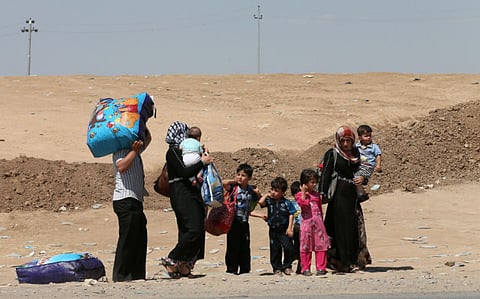GCC wary over US-Iran cooperation in Iraq
US says it might consider drone strikes as Isil militants make more gains on the ground

Dubai- The prospect of US-Iranian cooperation over the latest developments in Iraq will be watched closely by GCC states already wary of a pending nuclear agreement between the two former foes that could potentially bring Iran out of its current international isolation. “If there is a real cooperation between the US and Iran regarding clamping down on jihadist militants in Iraq, this would improve Iran’s global stature tremendously and the lifting of international sanctions could follow, which GCC states would not like,” Theodore Karasik, from the Institute for Near East and Gulf Military Analysis told Gulf News. It would not be the first time the US and Iran put aside their differences to fight a common threat.
In 2001, following the September 11 attacks, Iran and the US coordinated efforts to fight the Taliban in Afghanistan--but it proved to be only a temporary cooperation. US Secretary of State John Kerry said Monday that he would be open to cooperating with Iran over Iraq. Iranian President Hassan Rouhani said he would be open to working with the US on Saturday. The Islamic State of Iraq and the Levant, known as Isil, have captured several cities in the past week, sending shockwaves throughout the region. They wish to carve out an Islamic state between Syria and Iraq. On Monday, Kerry said that drone strikes ‘may well be’ an option to fight Isil.Meanwhile, on the ground Isil militants captured the largely Turkomen city of Tal Afar and its airport--it now controls five airports in Iraq. Iraqi Prime Minister Nouri Al Maliki, who has largely been blamed for his handling of events that led up to this point, said that Iraqi forces have regained initiative and are advancing against Isil.



